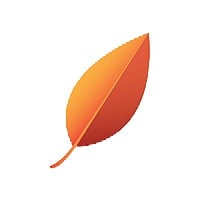After the essays wrested from fingers; after the exams in frosty classrooms; after the agony in impatient places; the studying and the waiting...you will get into college. Where, and with how much agony, is another question.
If you've taken a high school English or American literature class, you may recognize the previous jumble of clauses as an imitation of T.S. Eliot’s “The Waste Land,” and a dreadful one at that. Fortunately, you don’t need to know anything about Eliot per se to do well on the SAT. One great thing about the SAT is that students need to import no hard knowledge of the outside world when they enter the testing room. They need only to be able to employ skills. Specific works of literature don’t even appear on the ACT Reading section or on the SAT Literature Subject Test, which gauge students’ ability to interpret literature but do not require them to recall specific works.
What, then, is the use of literature? What of books, plays, short stories, and poems?
Though Eliot writes of April's cruelty, there’s no better time than June -- when schools go dormant and days go long -- to discuss reading. I am not, however, going to mount a wholesale defense of literature just this moment. In this the age of emails, tweets, and diminished attention spans, plenty of other writers have argued more convincingly and forcefully in favor of thoughtful, sustained reading than I ever could. The topic of this blog is standardized testing, so let’s just stick to that.
As objective a test as the SAT (or ACT) may be, one of the best ways to prepare for it is to embrace the subjectivity of reading. There is no doubt that test preparation -- such as that offered by ArborBridge -- can help students achieve scores beyond their wildest dreams. But, if test preparation helps to raise the beams and girders of correct answers, reading is what pours the foundation. (According to some research, that foundation is weaker than ever among US test-takers; international students historically have a harder time on Critical Reading and Writing than they do on Math.)
Underlying all those stories, whether they are about Captain Ahab or Blair Waldorf, are the very same principles of grammar and diction that appear on the SAT.
These precepts should be obvious: Books are made up of words, so any good novel should have as many vocabulary words as you’d ever care to know. One way to learn how to write well is to read well, and one way to learn grammar is to learn it from people who know what they’re doing (including those who deliberately defy the rules of grammar). If you can comprehend allegory and symbolism, draw out themes, and relate stories to the real world, then you can most certainly understand apolitical encyclopedia-style passages about asteroids or women’s suffrage. (The SAT is not known for its provocative reading comprehension passages.)
As much could be said about both fiction and nonfiction books. Shorter pieces of writing, such as magazine articles, are equally valuable, except they are generally not so immersive or complex as long-form writing is. So what’s special about fiction?
There are, fundamentally, two ways to learn: didactically and experientially. Didactic learning happens when someone tells you what you’re supposed to learn and you deliberately commit the information, skill, or concept to memory. Experiential learning comes about when you essentially, learn without even knowing it: when your brain receives information, organizes it, and makes sense of it subconsciously.
Most everything you do in school is didactic. Most nonfiction is didactic too. As is this blog post. So what do I want you to learn?
I want you to learn that, for all the usefulness of flashcards, practice questions, and grammar exercises, none can rival experiential nature of literature (not that I would ever discount great nonfiction or journalism). Think about this: how well can you navigate a place that you’ve seen only on a map as compared to one that you’ve visited on your own two feet? There’s no comparison. A map might get you there, but, as long as you look only at the map, you’ll still be lost without it. If you follow a path once or twice, taking note of your surroundings and your direction, you’ll be able to retrace it forever. By presenting a story as a firsthand experience, and by presenting language as an experience unto itself -- rather than as just a tool for communicating a foreign idea -- literature too can leave a permanent mark on the mind.
I refer to literature in order to distinguish it from mere entertainment. All fiction has value, but the more challenging a book is, and the more willing the reader is to rise to the challenge, the deeper the experience will be. Of course, even if you dedicate yourself to some serious reading this summer -- as I hope you will -- you’re not going to end the summer being able to list every vocabulary word that you picked up. There are, of course, a million good reasons to read. But when you sit down for the SAT, or even the next time you type a text to a friend, you may surprise yourself with what you know.
So, it’s June already. Not a cruel month in the least. It’s not a bad time to grab a book, whether you want to raise that Critical Reading score, or whether you just want to find out what the thunder said.






